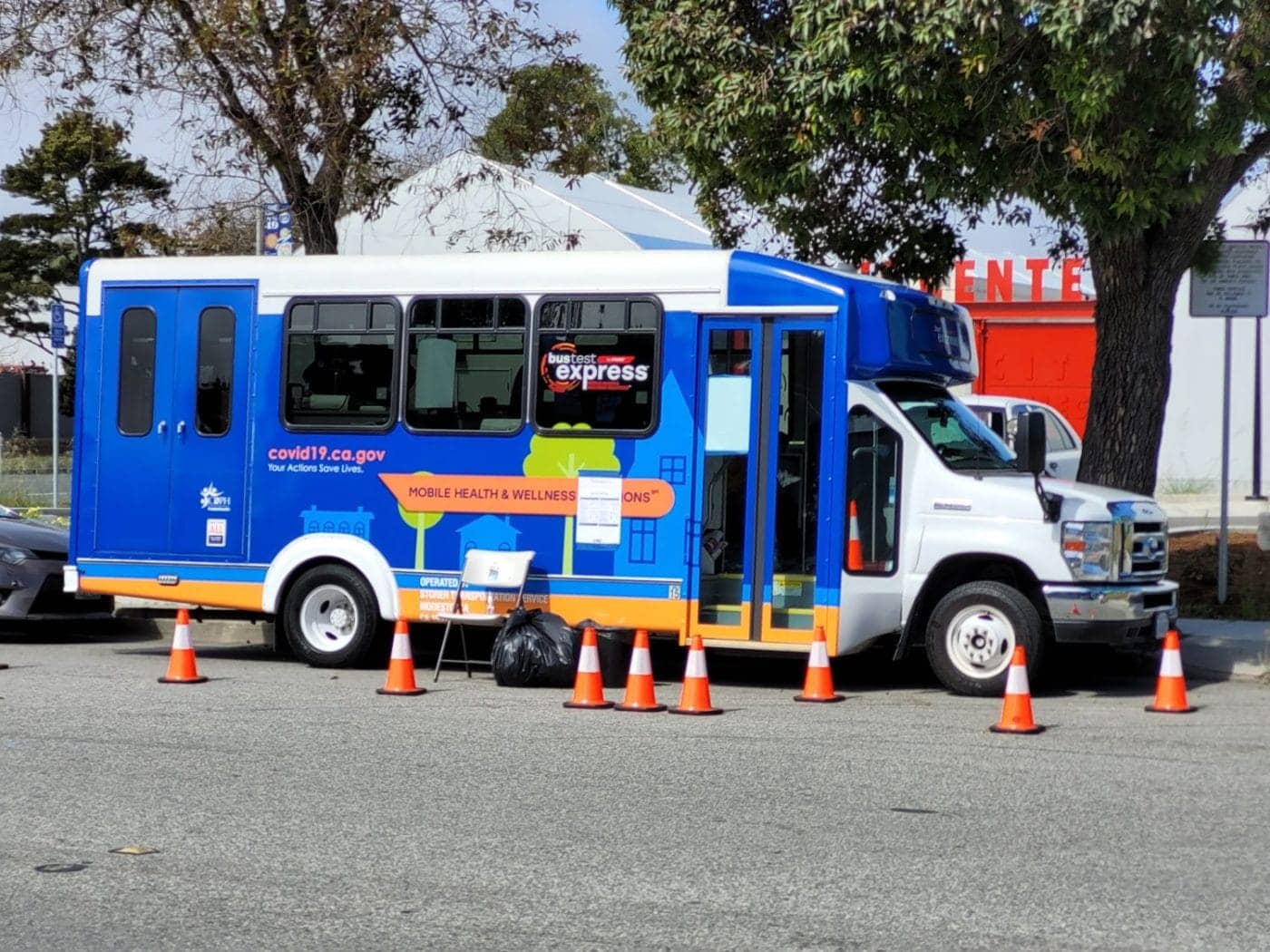
by Daphne Young, Education Reporter
Health officials in San Francisco are shutting down one of the main COVID-19 testing sites in the City, located at 7th and Brannon, and moving more towards mobile COVID-19 testing vans and teams in an effort to target communities hardest hit by the pandemic.
“Bayview, Mission and Tenderloin are three of nine neighborhoods that the San Francisco Public Health Department is focusing on for the next 90 days,” said Charles Fann, San Francisco Public Health District task force lead.
“When you look at the Bayview area in particular, we are trying to support what is already going on at sites like the Southeast Health Center, located at 2401 Keith St., San Francisco, CA 94124,” said Fann. “So, we are working to supplement the services without duplicating the work.”
Last week, a mobile testing van operated by OPTUM Serve began administering tests at five access points in the Bayview, SoMa and Civic Center, and will continue to offer tests through the Increasing Community Access to Testing program which is funded by the State of California.
SFDPH also expanded its contract with CityHealth to provide mobile testing at various scheduled locations in underserved communities. The CityHealth service, which collects specimens for lab-based PCR tests, is expected to begin the first week of April.
“SFDPH is deploying a new mobile testing strategy to be able to rapidly expand or contract testing as needed and to target resources where they are needed, most in neighborhoods with the highest positivity rates that have suffered the greatest impact from the pandemic,” said Fann.
“We can scale up these mobile testing teams as needed if we have an increase in cases, and we can target locations where we know there is the highest demand and the most need for low-barrier access to testing.”
A calendar of where the vans will be parked with dates is available at sf.gov/gettested. SFDPH is planning to evaluate real-time data on test positivity rates to decide where to station the testing vans on a month-to-month basis.
San Francisco’s Health Depart is focusing on reducing health disparities and wants to lower the impact on communities hardest hit by COVID. In addition to testing, SFDPH is closing gaps in vaccinations and boosters through vaccine events in schools and communities of color and is distributing masks to those communities while masking is strongly recommended for indoor public settings.
This mobile testing launch comes as SFDPH closed the 7th and Brannan SoMa testing site on March 31. On April 1, the Alemany Farmers Market testing site, open each weekday in partnership with Color Health, began expanding hours Tuesday-Thursday. Meanwhile, stationary sites at Southeast Health Center and Ella Hill Hutch remain open.
Also, SFDPH and community partners are distributing over-the-counter test kits to individuals who are medically vulnerable in senior housing facilities, or in highly impacted communities, and among City workers performing essential services. More than 230,000 over-the-counter test kits were distributed back in January and February by SFDPH and community partners.
Testing has played a critical role in San Francisco’s COVID-19 emergency response, and the data collected has enabled the City to address health and socioeconomic inequities in the deployment of resources, such as placement of vaccine sites in areas with higher test positivity.
Meanwhile, San Francisco has one of the lowest hospitalization and death rates in the nation, despite its dense population, in large part due to high vaccination – 83 percent – and booster rates and strong community support for other COVID-19 safety protocols, including masking.
As of March 13, San Francisco conducted an average of 4,663 tests per day, down from 16,178 at the peak of the Omicron surge in January. The 7-day positivity rate is 2.4 percent compared to the peak of 18.9 percent in January, when SFDPH-affiliated sites rapidly scaled up testing capacity in response to the Omicron surge.
Of course, the San Francisco Department of Public Health recommends people get tested:
- If they have COVID-19 symptoms or when they have had a close contact with someone who has COVID-19.
- If they are testing five days after an infection to come out of isolation.
- When asked by their school, workplace, doctor or the Department of Public Health.
More importantly, health officials say people should access tests through their health care provider if they have one. But, if you need to get tested at SFDPH-supported sites, mobile units will now be more readily available, along with ongoing services at community-based testing sites.
For more information on COVID-19 testing recommendations and sites, visit sf.gov/gettested.
Daphne Young is the Education Reporter at the San Francisco Bay View National Black Newspaper. The Chicago native is an award-winning journalist who’s covered news for radio and TV stations around the country. She attended San Francisco State University and is a member of Delta Sigma Theta Sorority, Inc. If you have an education story that you’d like to see the Bay View cover, please contact Daphne by email: education@sfbayview.com.





